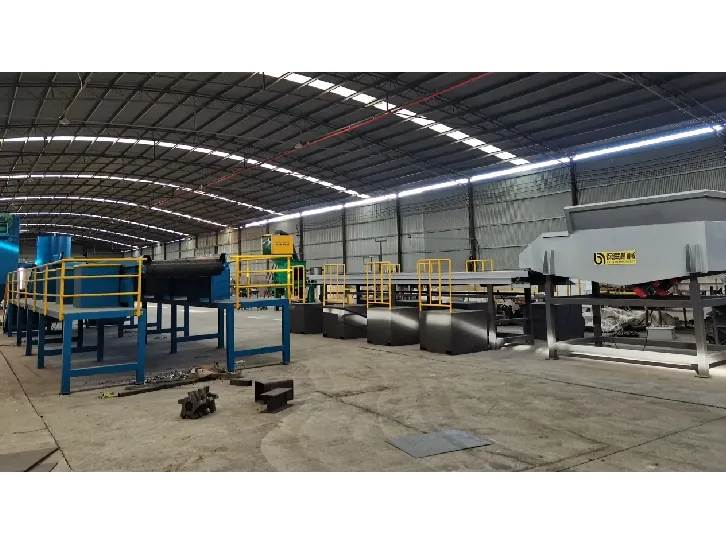
9 月 . 12, 2024 22:27 Back to list
How to Dispose of Electrical Items Responsibly
As technology continues to advance at an unprecedented pace, the number of electrical items we use daily also skyrockets. From outdated gadgets to broken appliances, these electronic items can accumulate quickly, posing a significant challenge for responsible disposal. Proper disposal of electrical items is essential not only for environmental protection but also for reducing potential health risks associated with hazardous materials often found in electronic waste (e-waste).
Firstly, it’s important to understand what constitutes e-waste. Electrical items include everything from old televisions, computers, and smartphones to smaller household appliances like toasters and hairdryers. Many of these devices contain toxic substances such as lead, mercury, and cadmium. When these items are improperly discarded in landfills, these hazardous materials can leach into the soil and water, causing environmental contamination.
One effective method to dispose of electrical items is to take advantage of recycling programs. Many municipalities offer e-waste recycling services where you can drop off your old electronics at designated locations. These recycling programs ensure that the materials are processed properly, recovering valuable metals and components while safely managing hazardous materials. Check your local recycling guidelines for specific drop-off points and any scheduled e-waste collection events.

In addition to municipal recycling programs, many retailers and manufacturers participate in take-back programs. Stores like Best Buy and large electronics manufacturers often have initiatives that allow customers to return old electronics for safe disposal or recycling. This not only keeps harmful materials out of landfills but also encourages consumers to purchase new, more energy-efficient products.
Another option for responsibly disposing of electrical items is donating them if they are still functional. Consider giving your old electronics to charities, schools, or community centers that can benefit from these devices. Before donating, ensure that you’ve wiped any personal data from devices to protect your privacy.
Finally, if you can't recycle or donate, you can look into specialized e-waste disposal companies that handle the collection and processing of electronic waste. These companies adhere to strict regulations and employ environmentally-friendly methods for disposal.
In conclusion, responsibly disposing of electrical items requires awareness and action. By utilizing recycling programs, take-back initiatives, and considering donation, we can minimize the environmental impact of e-waste and contribute to a more sustainable future. Remember, every small effort counts in the collective goal of reducing e-waste and protecting our planet.
Latest news
Unveiling the Power of Eddy Current Separator
NewsSep.25,2024
Transform Your Home Recyclin:home metal shredder
NewsSep.25,2024
The Future of Waste Management with Recycling Line Picker
NewsSep.25,2024
The Benefits of a Metal Recycling Plant
NewsSep.25,2024
Revolutionize Material Separation with Onwang Technology
NewsSep.25,2024
Innovative Waste Management: Unveiling the MSW Sorting Plant
NewsSep.25,2024